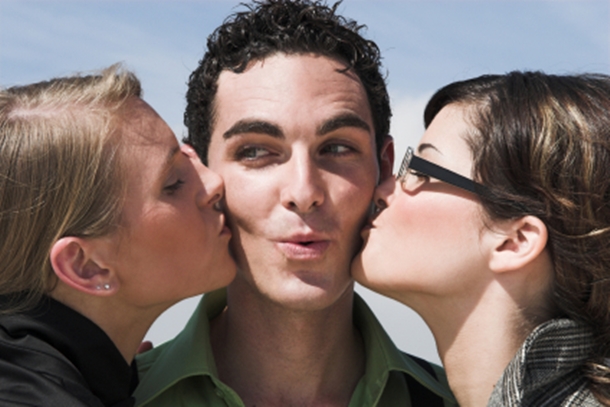The term pansexual has been popping up here and there in online forums and tumblr. Many people are unclear about just what, exactly, pansexual means and how it differs from bisexual. Also, there seems to be differing attitudes out there toward bisexuals and pansexuals.
One who identifies as “pansexual” is attracted to people of all gender identities – men, woman, transsexual and transgendered, and anyone in between. Often, self-identified pansexuals claim that they are not primarily sexually or physically attracted to others, but mainly attracted through emotional bonding, and therefore, others’ orientation is irrelevant – the comments I kept stumbling upon were of the “It’s what’s inside that counts” variety. Certainly, this can’t be the case for all who consider themselves pansexual, but I would hazard a guess that it is most common.
Bisexuals, on the other hand, are attracted to both men and women, often to varying degrees. This generally means bisexuals are sexually interested in cisgendered people. “Cisgendered” refers to a person who was born the same sex as the gender that they identify with – formerly or crudely called “biologically” or “naturally-born”. The term cisgendered was coined by the Trans community, (as the Latin-derived prefix cis means “to/this the near side,” which is the opposite of trans, meaning “on the opposite side”) in an attempt to help differentiate between gender identities without further stigmatizing the Trans community or normalizing cisgender people.
In these online places where such language is understood, pansexuals appear to be widely accepted as having a completely benign orientation, while bisexuals are often still vilified. People in relationships who come out as bisexual to their partners are often met with hostility or distrust; as though their orientation suggests they cannot be faithful or monogamous, but will feel compelled to pursue men and women simultaneously. In fact, bisexuals, forever accused of “fence-sitting,” remain constantly under attack by those who just want them to “pick a side” – as though sexual orientation were a big game of dodgeball. Pansexuals, on the other hand, are often viewed as hippies or Buddhists – those who could love anyone despite their identity, not because of it. To me, this suggests an underlying prejudice toward individuals who embrace their sexual orientation and aggressively pursue their interests – something that self-identified pansexuals do just as often as bisexuals.
In the future I’ll write a more thorough post about the stigma attached to bisexuality in our culture. In the meantime, I want to know: do you identify as bisexual or pansexual? What other myths have you heard associated with these orientations?


Tell us what you think